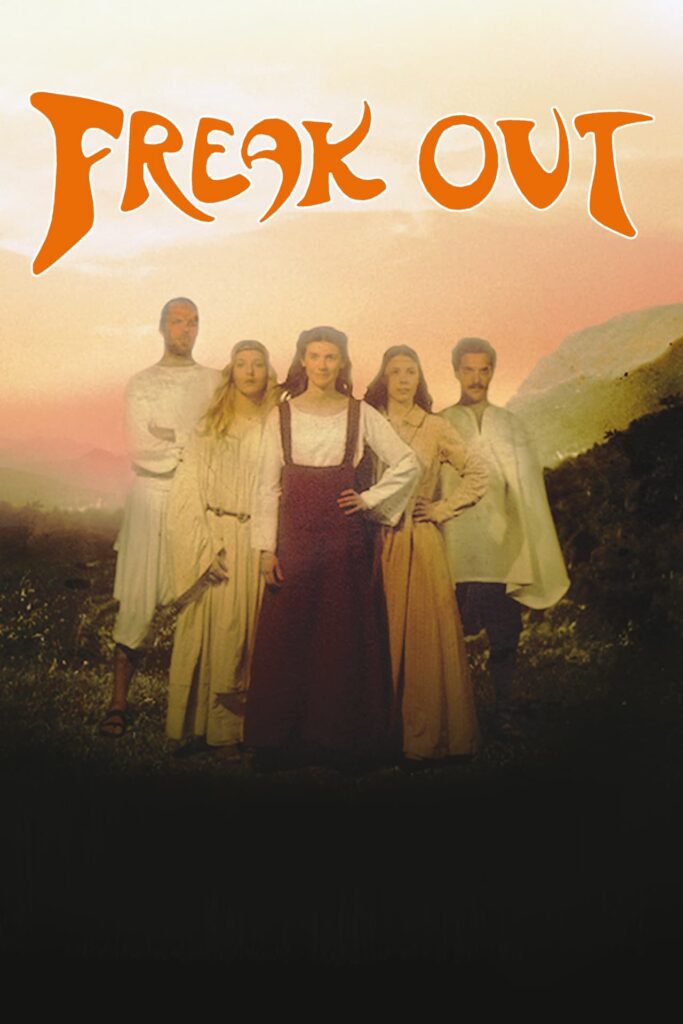
Director: Carl Javér
Genre: Documentary, Historical
Runtime: 1h 29m
TMDB Rating: Not listedPlot: The Original Hippies of 1900
Freak Out! chronicles the radical Monte Verità community, founded in 1900 by middle-class rebels in southern Switzerland. Dubbed the “mountain of truth,” this avant-garde enclave embraced veganism, feminism, pacifism, and free love decades before the 1960s counterculture movement. Through a mix of interviews, archival footage, and animation, the film reconstructs the lives of pioneers like pianist Ida Hofmann and Henri Oedenkoven, who sought to reject societal norms and build a utopian society. The documentary draws eerie parallels between their struggles and modern-day activism, framing their rebellion as a precursor to contemporary social movements.
Visual Style: A Patchwork of Past and Present
Javér employs a hybrid approach, blending grainy archival photos, black-and-white reenactments, and whimsical animations to evoke the era’s experimental spirit. The use of green-screen technology immerses viewers in Monte Verità’s lush landscapes and crumbling sanatoriums, while animated sequences—reminiscent of early 20th-century art—add surreal flair. However, the rapid shifts between formats (interviews, historical clips, narration) occasionally disrupt the narrative flow, creating a fragmented yet visually rich tapestry.
Key Voices and Contributors
Iben Hjejle: The Danish actor lends her voice to Ida Hofmann, infusing archival texts with emotional depth.
Interviewees: Scholars like Eileen Boris and Andreas Schwab contextualize the community’s legacy, while artists and historians dissect its influence on modern feminism and environmentalism.
Director Carl Javér: Doubling as editor and cinematographer, Javér’s hands-on approach emphasizes the project’s labor-of-love etho
This is an example page. It’s different from a blog post because it will stay in one place and will show up in your site navigation (in most themes). Most people start with an About page that introduces them to potential site visitors. It might say something like this:
Themes: Utopia’s Double-Edged Sword
Rebellion vs. Privilege: The film critiques the paradox of affluent rebels seeking “simplicity”—many members relied on family wealth to fund their ideals.
Timeless Activism: Monte Verità’s battles against gender inequality and industrialization mirror modern fights for climate justice and LGBTQ+ rights.
Legacy of Failure: Despite its eventual dissolution, the community inspired later movements, from Bauhaus design to 1960s communes.
Reception: Acclaimed but Niche
Freak Out! garnered international acclaim, winning awards at festivals like the Green Film Festival in Seoul and Utopia Film Festival in the U.S. Critics praised its innovative structure and historical relevance, though some noted its uneven pacing and overambitious scope. Audience reactions were polarized: history buffs lauded its depth, while casual viewers found its academic tone alienating.
Critic’s Verdict
Freak Out! is a visually inventive, if occasionally disjointed, tribute to forgotten revolutionaries. Javér’s passion for the subject shines through in the meticulous archival work and creative storytelling, though the documentary’s density may overwhelm those unfamiliar with early 20th-century European history. For viewers fascinated by counterculture’s roots, it’s a revelatory gem.
Strengths
Bold fusion of animation, interviews, and archival footage.
Thought-provoking parallels between past and present activism.
Weaknesses
Overloaded narrative structure.
Limited exploration of the community’s internal conflicts.
Rating: 7.5/10
Essential for history enthusiasts, but approach with patience.
Pair With
Hippie Family Values (2017) for a modern take on communal living, or The Salt of the Earth (2014) for another visually driven historical documentary.
Cultural Footprint
By bringing attention to Monte Verità, Freak Out! enriches the discourse on the evolution of alternative lifestyles and their impact on societal development, highlighting the continuous human endeavor to seek authenticity and freedom beyond conventional boundaries.
